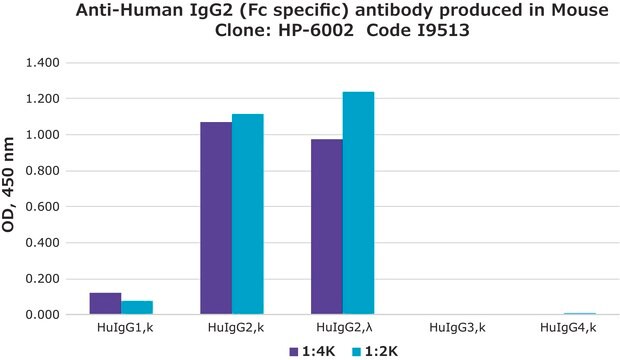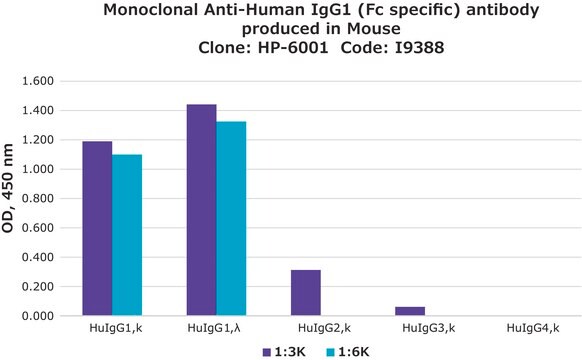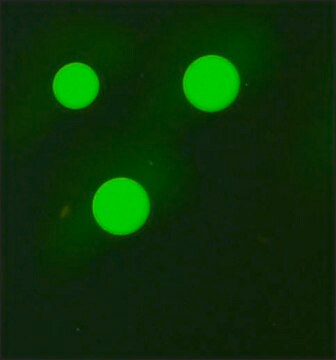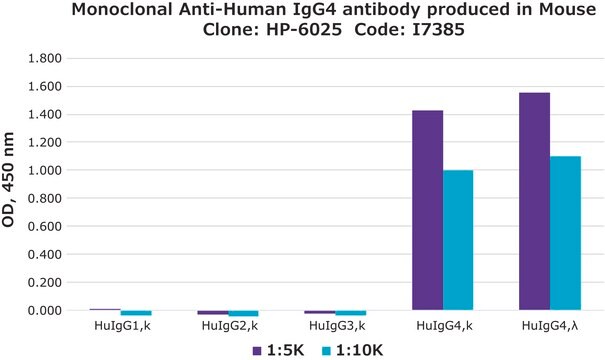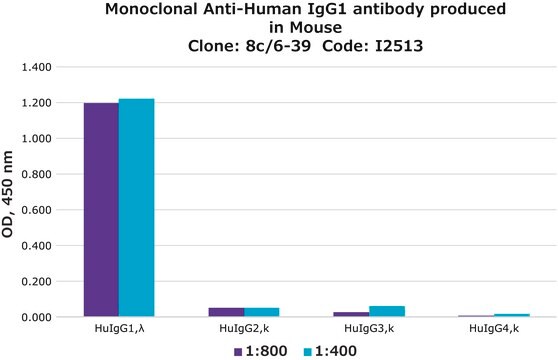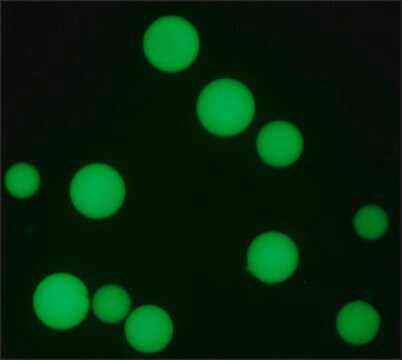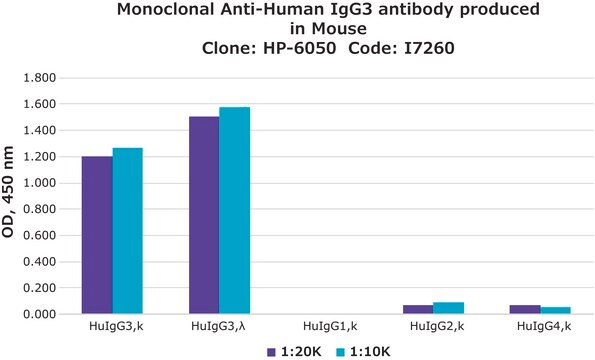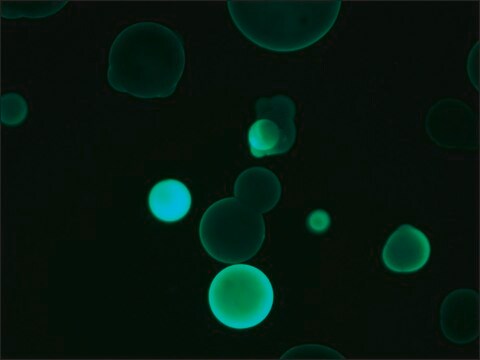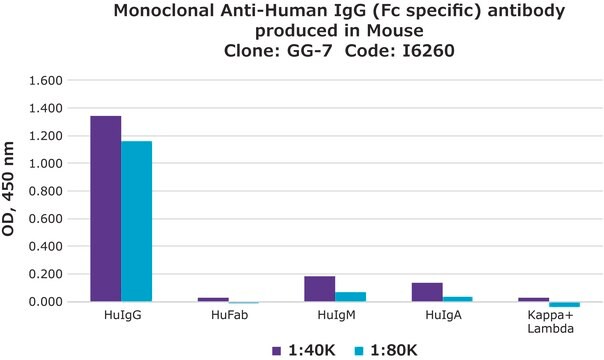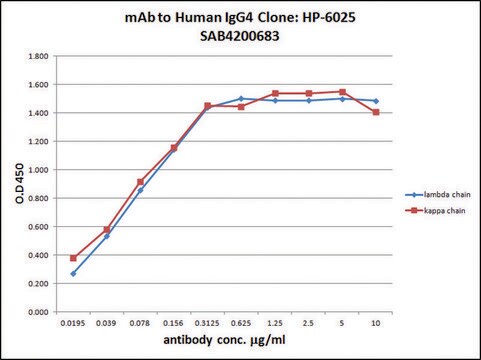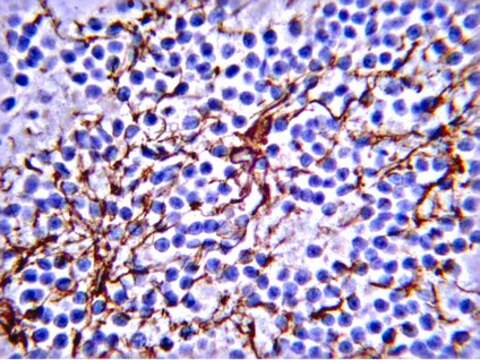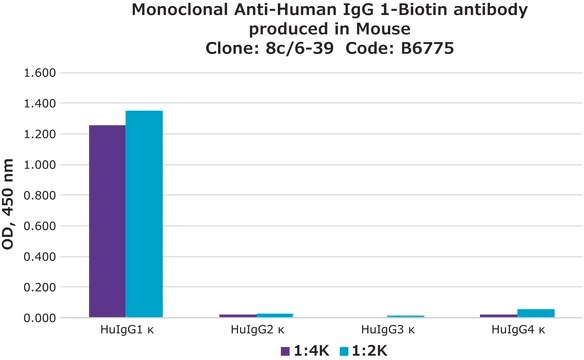I5635
Monoclonal Anti-Human IgG2 antibody produced in mouse
clone HP-6014, ascites fluid
Sinonimo/i:
Monoclonal Anti-Human IgG2
About This Item
Prodotti consigliati
Origine biologica
mouse
Livello qualitativo
Coniugato
unconjugated
Forma dell’anticorpo
ascites fluid
Tipo di anticorpo
secondary antibodies
Clone
HP-6014, monoclonal
contiene
15 mM sodium azide
tecniche
indirect ELISA: 1:5,000
Isotipo
IgG1
Condizioni di spedizione
dry ice
Temperatura di conservazione
−20°C
modifica post-traduzionali bersaglio
unmodified
Cerchi prodotti simili? Visita Guida al confronto tra prodotti
Descrizione generale
Specificità
Applicazioni
It may also be used:
- in imprint immunofixation
- in immunofluorometric assay
- in hemagglutination
- in hemagglutination inhibition
- in particle counting immunoassay
- in detection of cytoplasmic IgG
Azioni biochim/fisiol
Esclusione di responsabilità
Non trovi il prodotto giusto?
Prova il nostro Motore di ricerca dei prodotti.
Codice della classe di stoccaggio
10 - Combustible liquids
Classe di pericolosità dell'acqua (WGK)
nwg
Punto d’infiammabilità (°F)
Not applicable
Punto d’infiammabilità (°C)
Not applicable
Scegli una delle versioni più recenti:
Possiedi già questo prodotto?
I documenti relativi ai prodotti acquistati recentemente sono disponibili nell’Archivio dei documenti.
I clienti hanno visto anche
Articoli
Antibody-based serology tests are useful in identifying subjects with an adaptive immune response to the SARS-CoV-2 virus. Anti-human immunoglobulin antibodies allow for quick and simple, yet reliable assays with easy readouts and can also be adapted for high-throughput screening.
Il team dei nostri ricercatori vanta grande esperienza in tutte le aree della ricerca quali Life Science, scienza dei materiali, sintesi chimica, cromatografia, discipline analitiche, ecc..
Contatta l'Assistenza Tecnica.